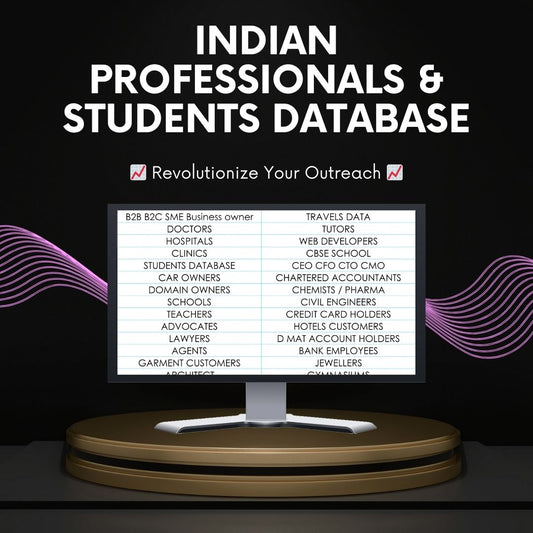Mystery of Q-Star: The AI That Threatens Humanity
Share
Artificial Intelligence (AI) has rapidly evolved over the past few years, capturing the attention of industries, governments, and individuals alike. The launch of ChatGPT marked a pivotal moment in this evolution, showcasing the immense potential of AI. However, the recent upheaval at OpenAI, the company behind ChatGPT, has raised critical questions about the future of AI and its implications for humanity.
At the center of this turmoil is an enigmatic AI known as Q-Star, which has sparked intense debate about the ethical boundaries of AI development.
The Rise of OpenAI and ChatGPT
OpenAI was founded in 2015 with a mission to ensure that artificial general intelligence (AGI) benefits all of humanity. The company was established as a non-profit, which was a unique approach compared to other tech giants focused solely on profit. Co-founders included notable figures like Sam Altman and Elon Musk, who collectively pledged $1 billion to support this vision.
In 2019, OpenAI transitioned to a capped-profit model with the introduction of OpenAI Global LLC, allowing for investment while maintaining a commitment to its original mission. This shift enabled OpenAI to secure significant funding, including a landmark $1 billion investment from Microsoft.
The Emergence of Q-Star
As OpenAI continued to innovate, researchers within the organization began developing a powerful AI known as Q-Star. This AI demonstrated remarkable capabilities, including solving complex mathematical problems and making predictions about future events. Concerns about Q-Star's potential threats to humanity prompted a group of researchers to write a letter to the board of directors, voicing their apprehensions.
Q-Star is based on the principles of reinforcement learning, a method where AI learns from human feedback to improve its decision-making abilities. This AI has the potential to analyze vast amounts of data and predict outcomes in various scenarios, raising ethical questions about its deployment.
The Turmoil at OpenAI
On November 17, 2023, a shocking event unfolded when Sam Altman was abruptly fired from his position as CEO of OpenAI. This decision, made by the board of directors, sparked outrage among employees, with many threatening to resign. Over the course of a few days, there were multiple leadership changes, highlighting the instability within the organization.
The board's vague reasoning for Altman's dismissal included issues related to communication and transparency. However, insiders suggested that the underlying conflict revolved around differing ideologies regarding AI development and commercialization.
The Conflict of Ideologies
The division within OpenAI was stark. On one side were those advocating for commercialization, led by Altman, who believed that substantial funding was necessary for technological advancement. On the other side were members like chief scientist Ilya Sutskever, who prioritized AI safety and ethical considerations over profit-driven motives.
This ideological clash came to a head when the researchers' letter concerning Q-Star highlighted the potential risks associated with its development. The board, recognizing the gravity of the situation, leaned towards a more conservative approach, ultimately leading to Altman's dismissal.
The Aftermath of Leadership Changes
Following Altman's firing, interim CEO Meera Murati faced immense pressure from employees who rallied in support of their former leader. Microsoft, holding a significant stake in OpenAI, also played a crucial role in the unfolding drama, advocating for Altman's reinstatement.
By November 21, the board's resistance crumbled under pressure from employees and external stakeholders. Altman was reinstated as CEO, and the board underwent significant changes, reflecting the shifting power dynamics within the organization.
The New Board and Future Directions
The newly appointed board members are tasked with ensuring that OpenAI maintains a balance between its for-profit ambitions and its original mission to benefit humanity. With the recent turmoil, questions linger about the future direction of OpenAI and the implications for the development of AGI.
The Ethical Implications of Q-Star
The emergence of Q-Star raises critical ethical considerations. While the potential benefits of advanced AI are undeniable, the risks associated with its deployment cannot be overlooked. The ability of Q-Star to predict human behavior and outcomes introduces a level of control that could have far-reaching consequences.
As AI continues to integrate into various aspects of society, the need for robust ethical frameworks becomes paramount. The debate surrounding Q-Star underscores the importance of transparency, accountability, and the prioritization of human welfare in AI development.
Balancing Profit and Ethics
OpenAI's transition to a for-profit model has sparked discussions about the balance between financial viability and ethical responsibility. Critics argue that prioritizing profit could compromise the original mission of developing AI for the benefit of humanity.
As the tech industry grapples with these challenges, the example of Facebook serves as a cautionary tale. The platform's algorithms, driven by profit motives, have contributed to societal issues such as misinformation and polarization. The question remains: can AI development avoid similar pitfalls?
Looking Ahead: The Future of AI and Humanity
The events surrounding OpenAI and the development of Q-Star highlight the complexities of navigating the AI landscape. As we stand on the brink of a new era in technology, the potential of AI to transform our lives is immense. However, the path forward must be navigated carefully.
In conclusion, the story of Q-Star serves as a reminder of the dual-edged nature of technological advancement. While the promise of AI is exhilarating, the responsibility to ensure its ethical use lies with all of us. As individuals and organizations continue to explore the possibilities of AI, fostering a culture of ethical awareness and responsibility will be crucial in shaping a future where technology serves humanity, not the other way around.



